Rochelle Feinstein: You Again
February 3rd - April 2nd, 2022-
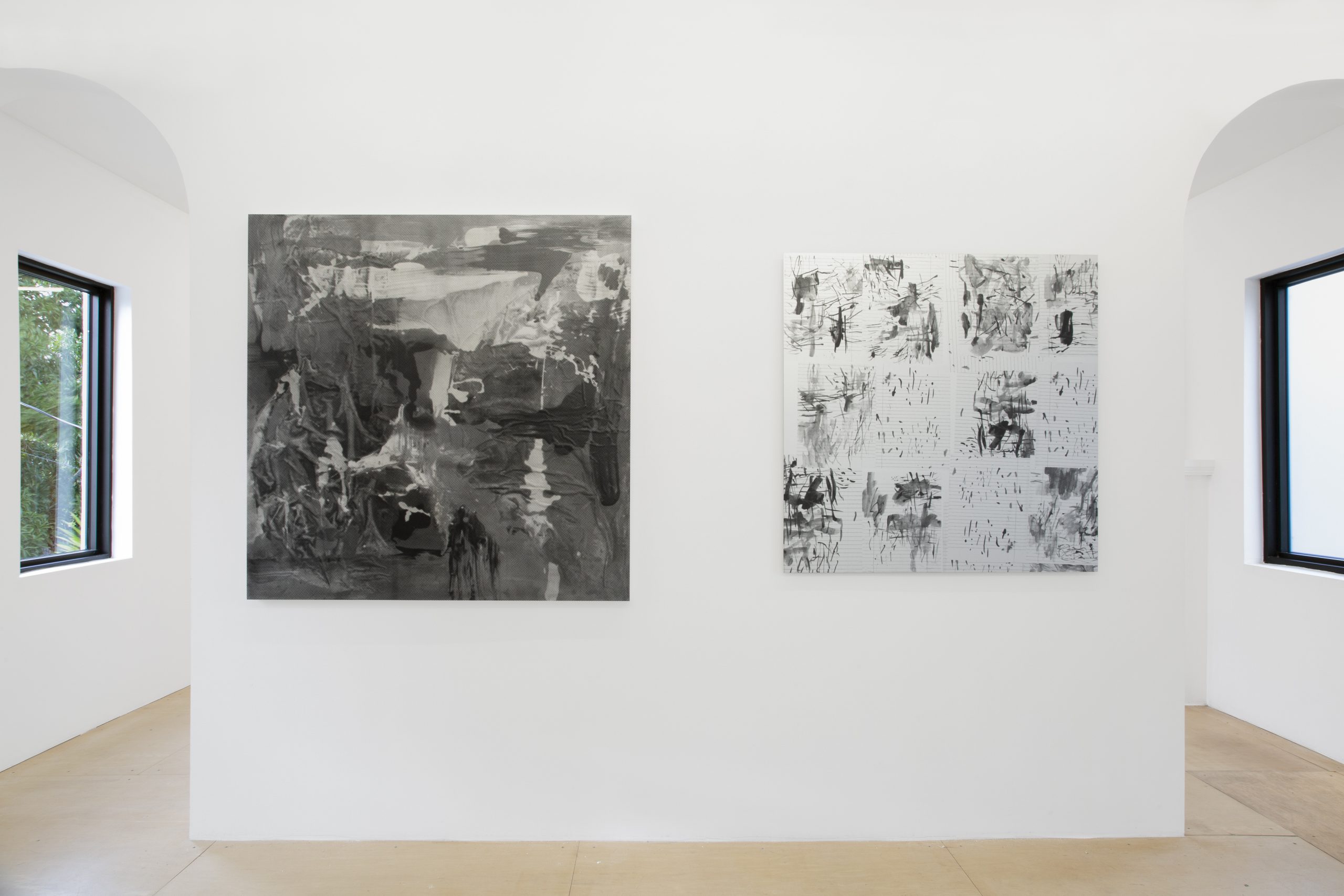
Rochelle Feinstein: You Again, Installation View. Photography by Greg Carideo
“Red flags, blue states, white noise, blackouts. Of all painting’s visual elements, color most clearly influences how we describe the culture. It colors it for us, not visually, but linguistically. Which, lucky enough, is Rochelle Feinstein’s home turf. As part of You Again, an exhibition-in-parts taking place this spring across six galleries on two continents, Nina Johnson presents a selection of paintings that chart Feinstein’s protean career through color, illuminating along the way how we, as a culture, look, watch, see.
But first, a disclaimer: Rochelle Feinstein isn’t a colorist. When color does appear, and—given Feinstein’s boisterous visual identity—it’s pretty much always there, not so much as filler or mood, but rather a key to something larger: a code or character, personal or national. (This was last explored in Fredonia!, Feinstein’s 2020 show at the gallery, which used blue and red to explore the nation’s political reality).
-
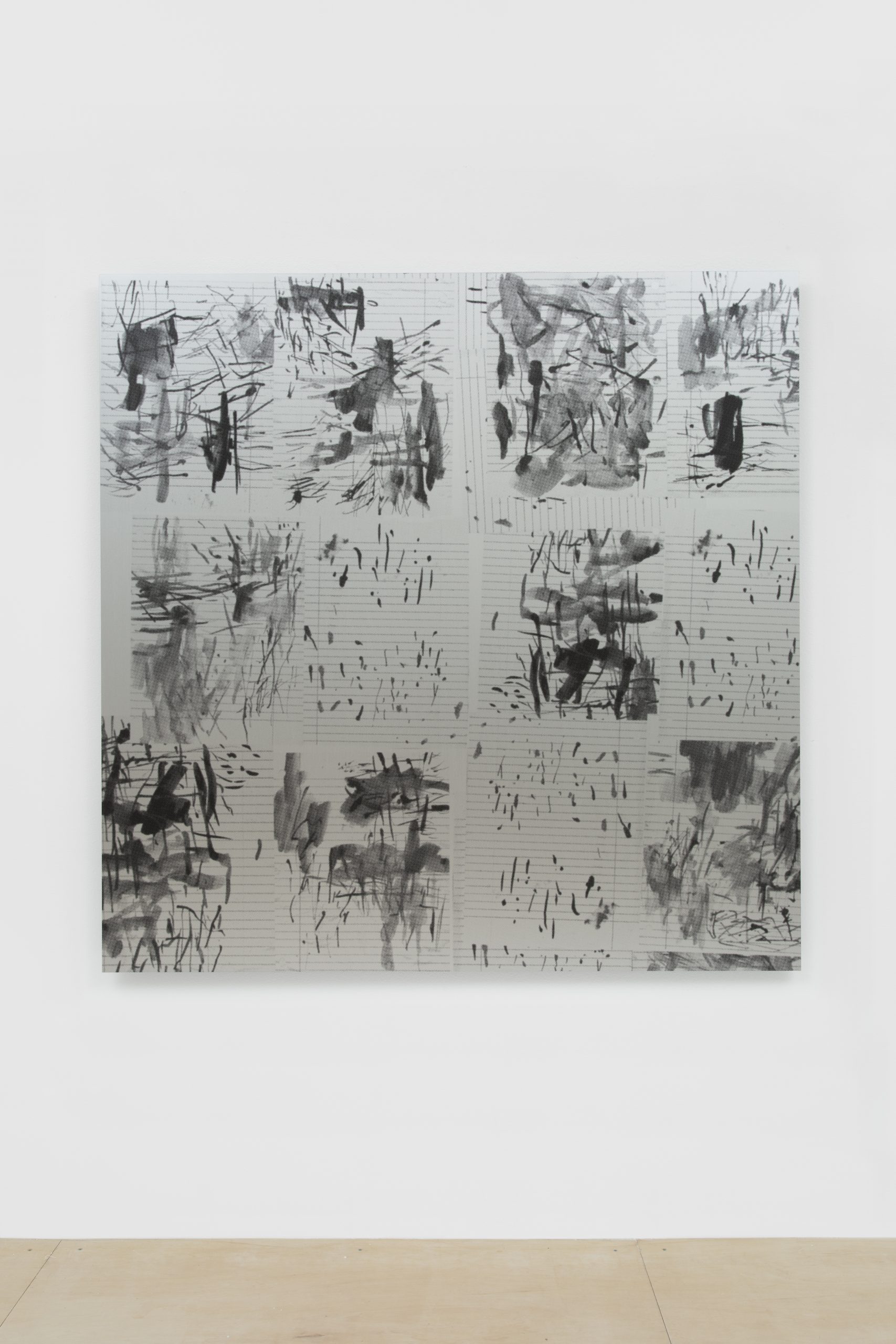
Rochelle Feinstein, Endpapers 2, 2021, UV on aluminum, 42 x 42 in.
-
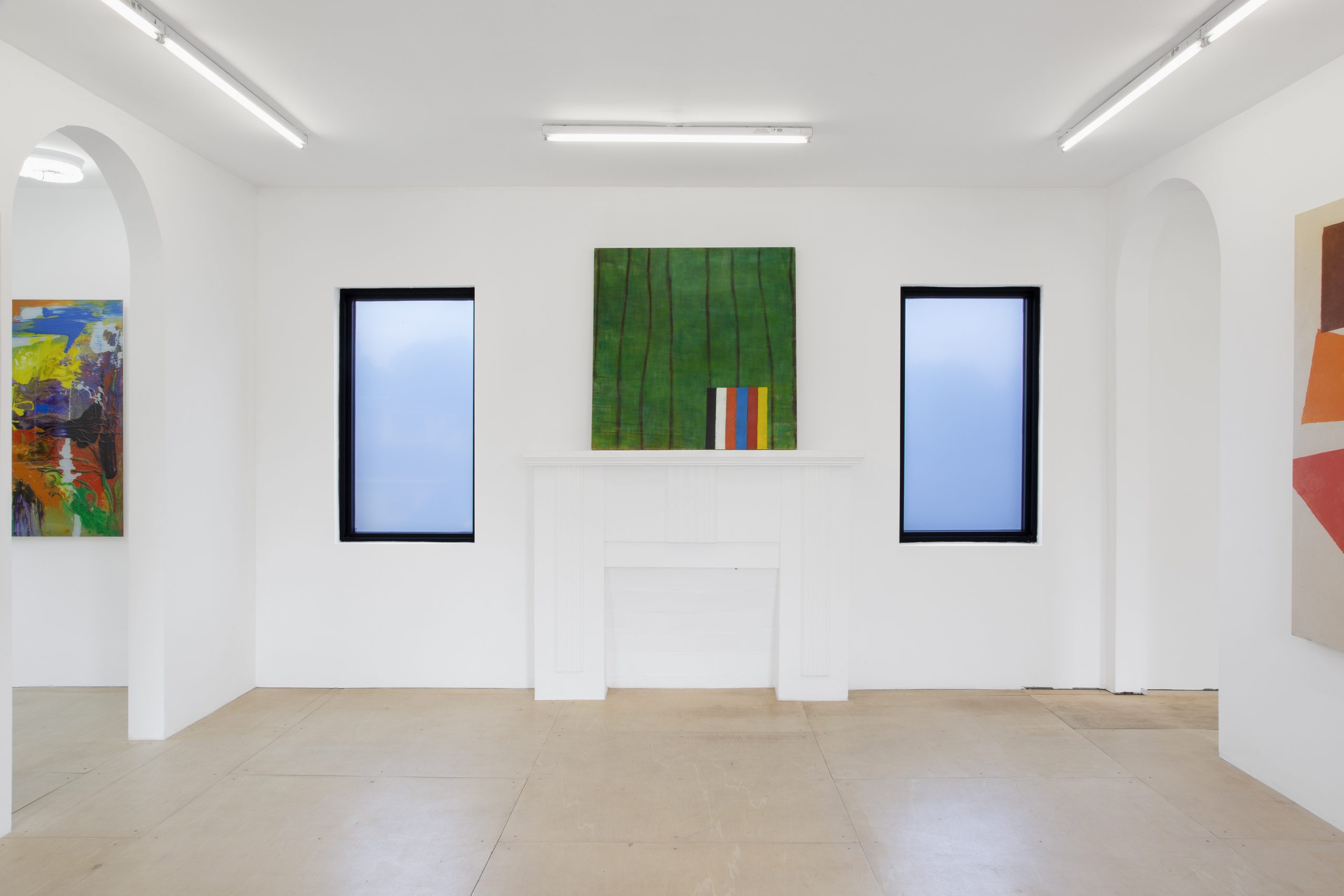
Rochelle Feinstein: You Again, Installation View. Photography by Greg Carideo
The earliest painting on display in the gallery is “Living Color” (1989), a wobbly rectilinear composition of variegated greens, furrowed by black, adorned with a small inset of what could be a parody of hard-edged abstraction, but turns out to be an old television test card (in the before-Netflix-times, the screen that went up when a channel wasn’t broadcasting). Painted in Vermont, while she was teaching at Bennington, the composition came after two years spent traveling in Europe, looking at landscape painting, looking at landscapes. It is both a color field and a field field—a verdant portal, as seen through her studio window. This irreverent riffing on capital-P painting is classic Feinstein, as is its humorous mix of observation and mediation.
-
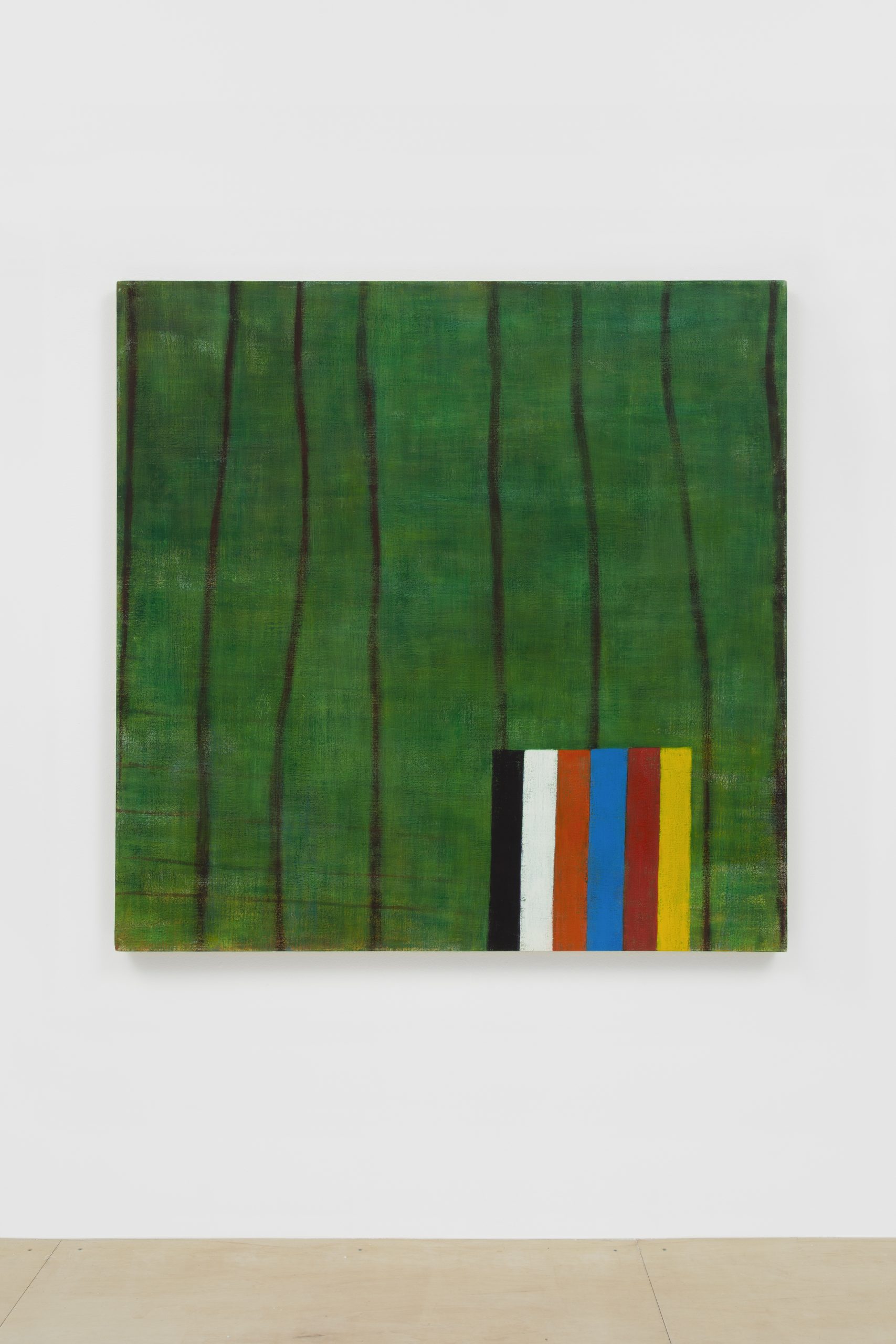
Rochelle Feinstein, Living Color, 1989, Oil on linen, 42 x 42 in.
-
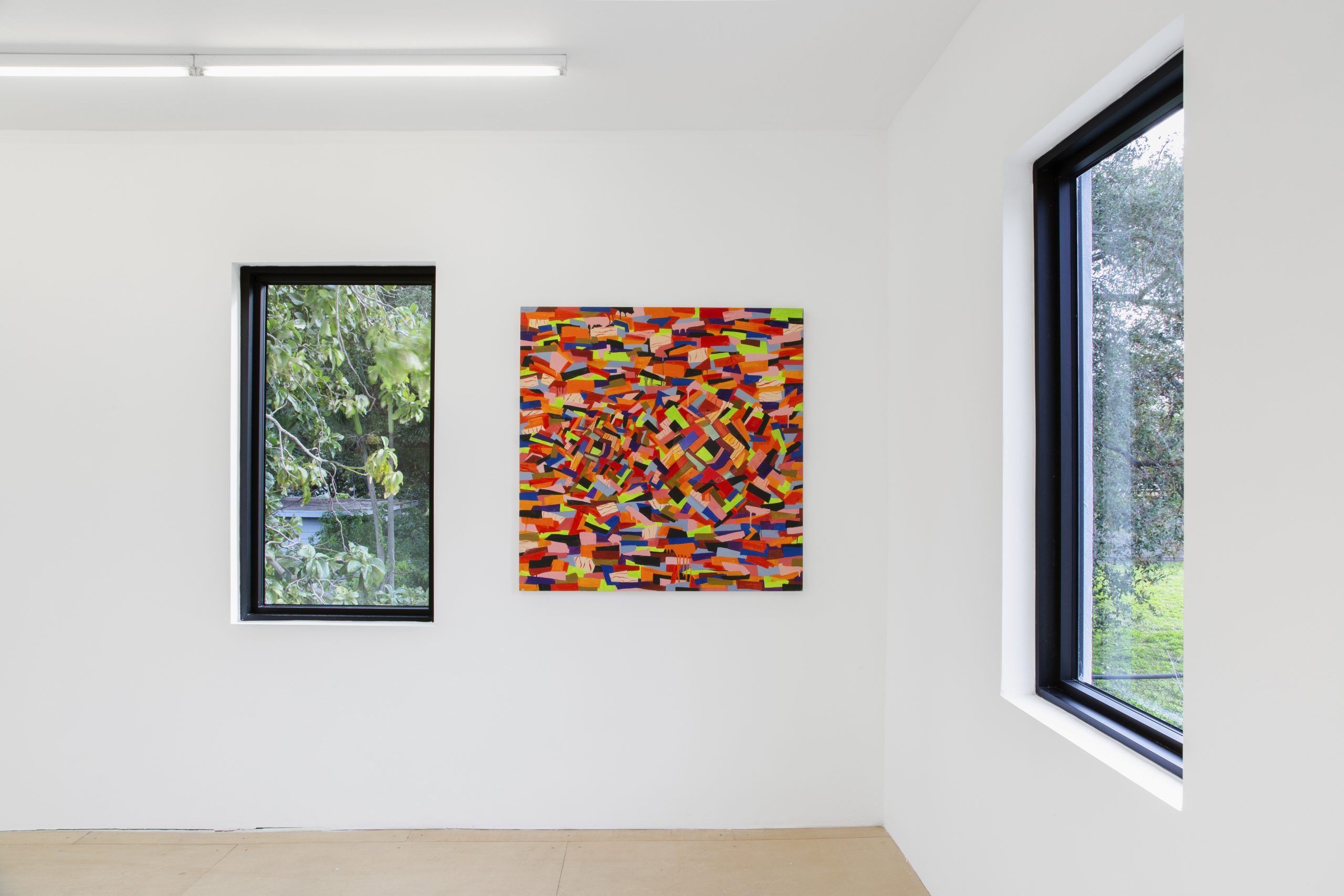
Rochelle Feinstein: You Again, Installation View. Photography by Greg Carideo
Another earlier work that plays with opticality and point of view is “My Left Eye” (1996). This is painting as confetti cannon, painted as Feinstein recovered from cataract surgery. At its genesis was a puzzle she found at a yard sale, the cardboard box of which is now collaged in the center of the composition. Like the television screen perched in the corner of “Living Color,” it’s a bit of bathos coming for the heights of academic formalism, a sly assertion that out of the haze of perception, viewers will always come looking for something from the real world—something they can take home. That abstraction must hold its own, or else painting is just another pastime.
-
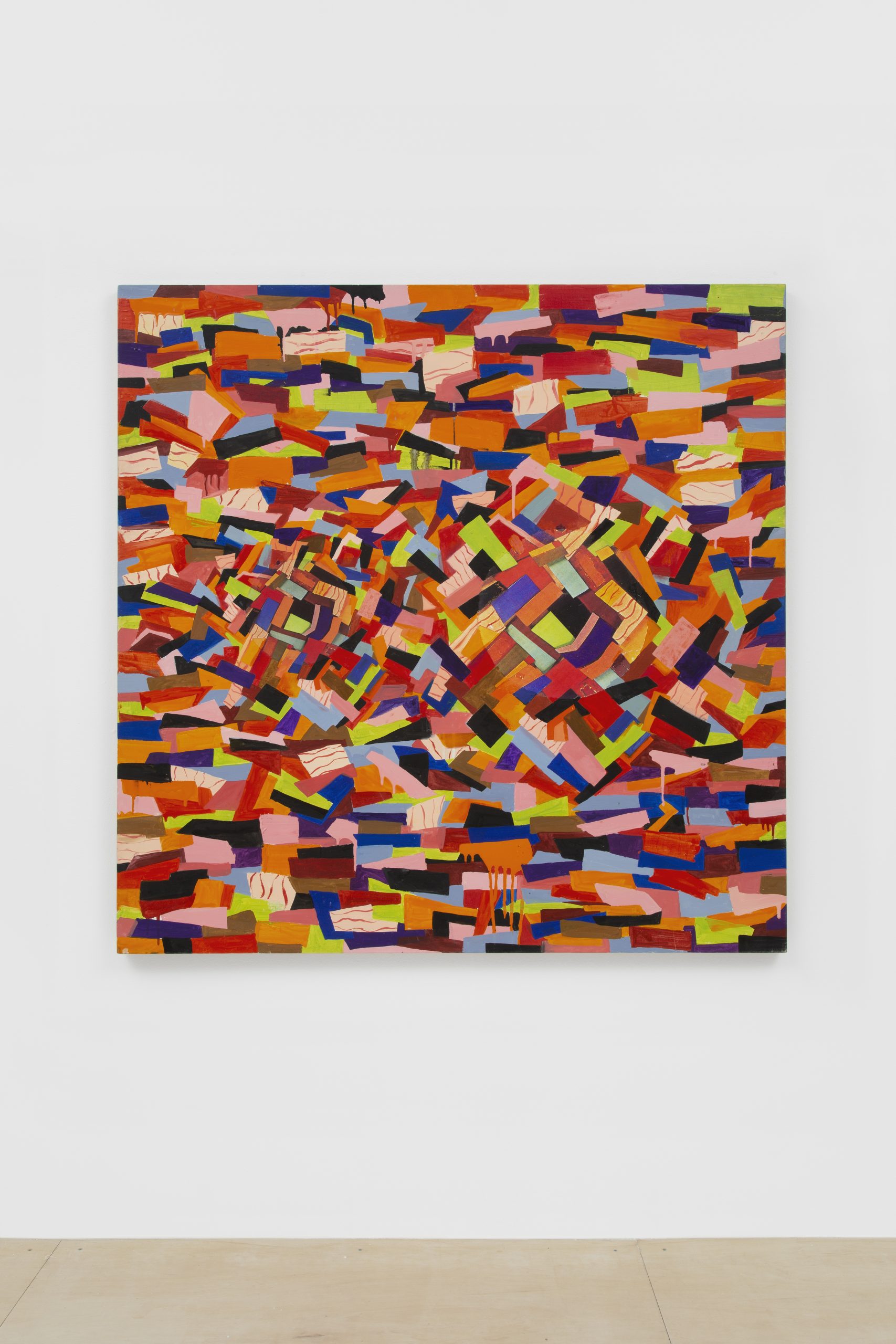
Rochelle Feinstein, My Left Eye, 1996, Oil, collage on linen, 42 x 42 in.
-
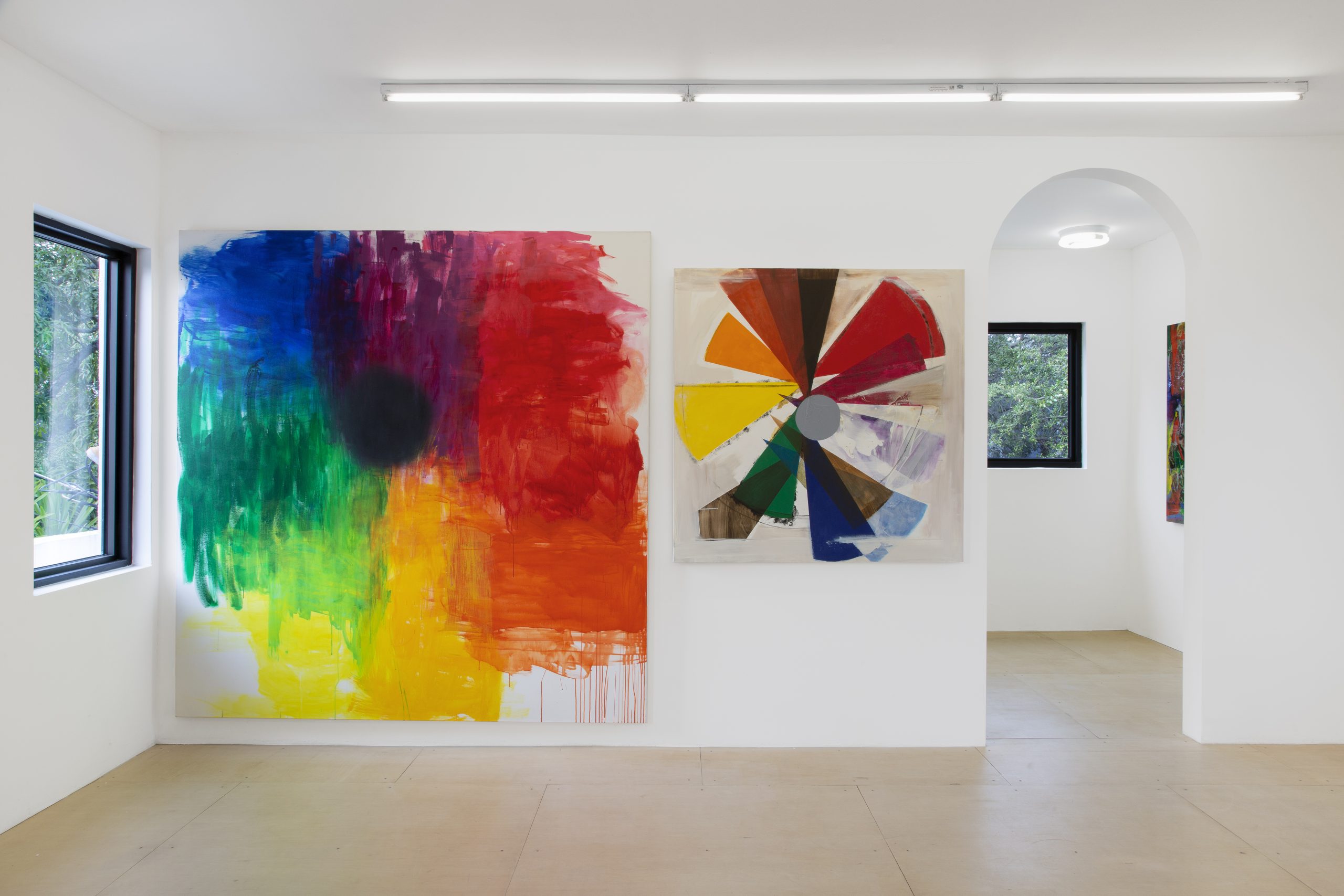
Rochelle Feinstein: You Again, Installation View. Photography by Greg Carideo
In the later works, there’s a creeping suspicion about what we ask of painting, and what it can do. In the joyful diptych “Color Therapy” (2015), a rainbow explosion of lush brushstrokes and a dance of vibrant sectors. The work invites, then deflates, lighthearted description as it moves from ROYGBIV opticality to all the emotive connotations we hang on color, as if it were a coat rack in a therapist’s waiting room. Rainbows are one of the oldest cultural symbols on the planet, stretching at least from Noah’s Ark to Stonewall. What we expect color—and by extension, painting—to mean, how we describe them through language, is at the heart of this work, as well as everything else in the exhibition.
-
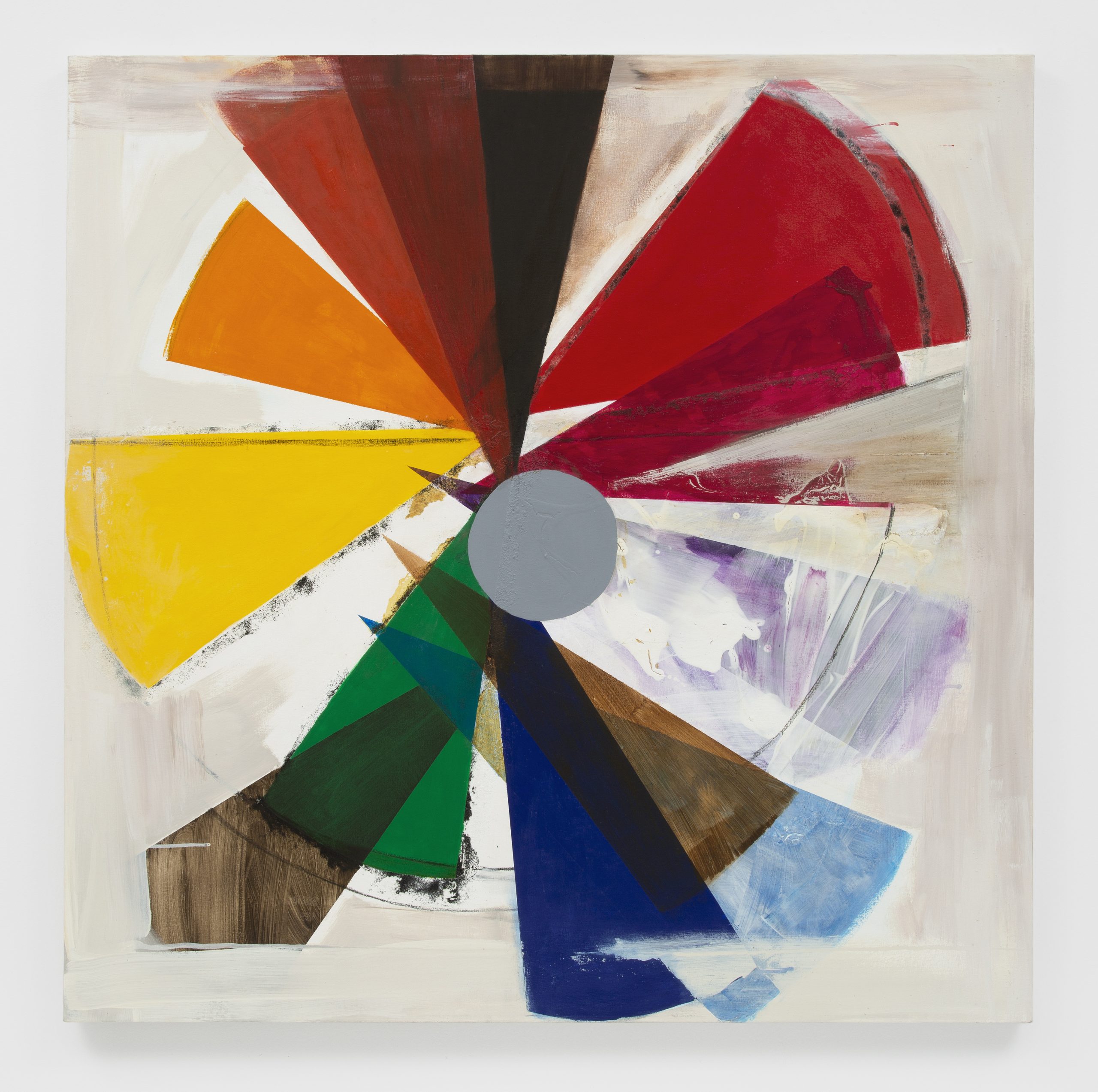
Detail of Rochelle Feinstein, Color Therapy, 2015, Enamel, acrylic on canvas; oil, acrylic, charcoal, smalt on canvas, 84 x 156 in. (Overall Dimensions) -
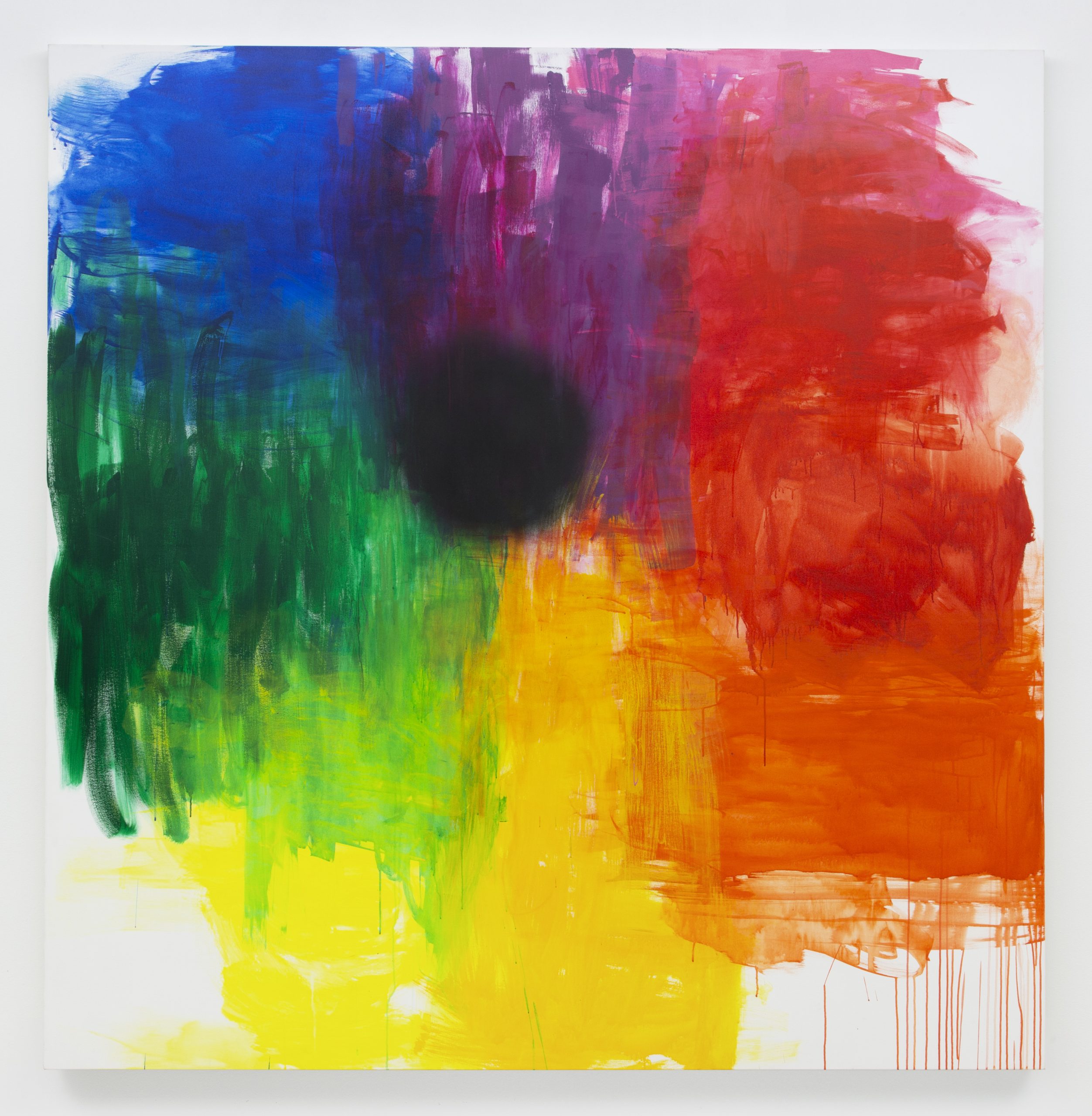
Detail of Rochelle Feinstein, Color Therapy, 2015, Enamel, acrylic on canvas; oil, acrylic, charcoal, smalt on canvas, 84 x 156 in. (Overall Dimensions)
-
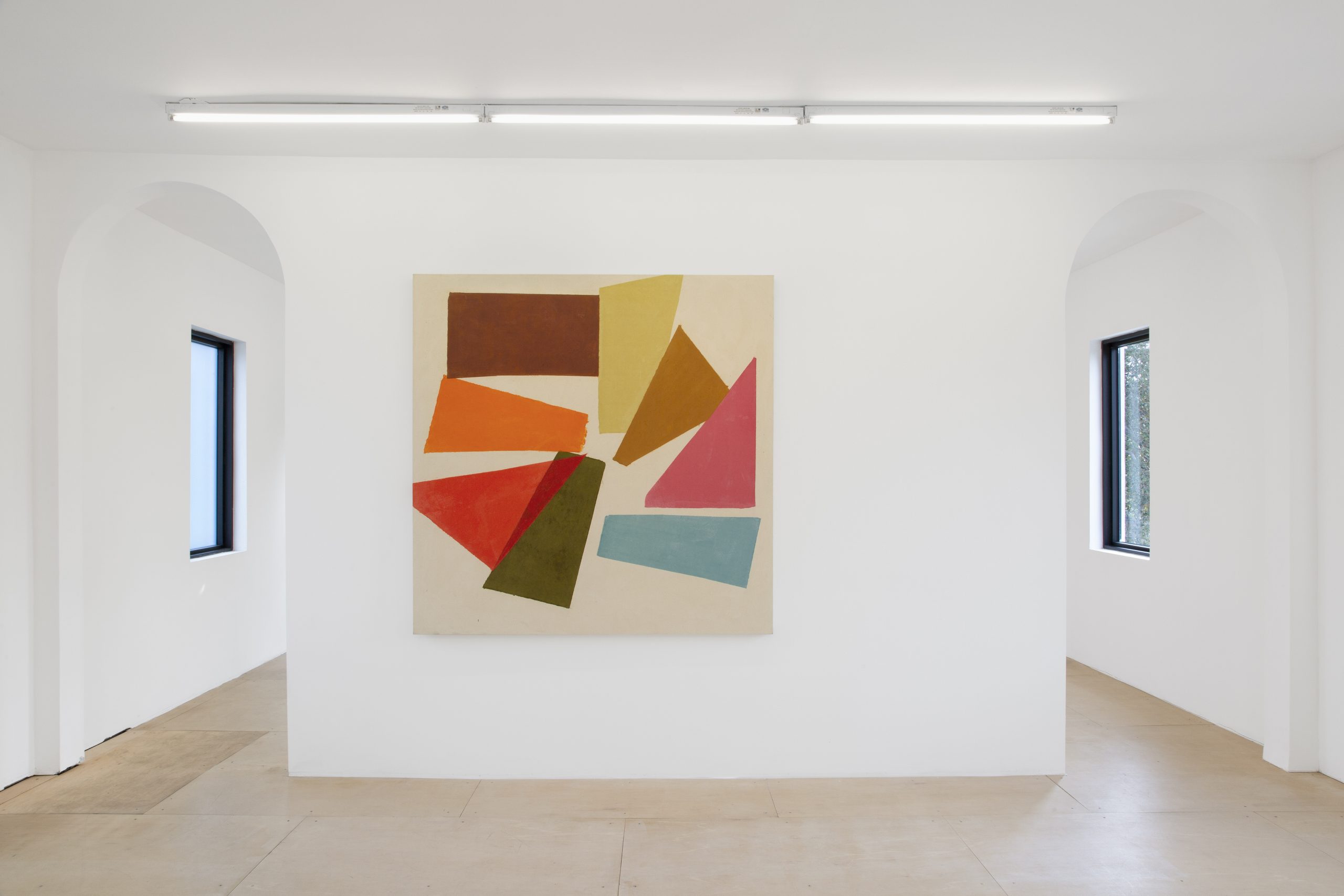
Rochelle Feinstein: You Again, Installation View. Photography by Greg Carideo
The spectrum shifts in “Off Color” (2017), a work that rhymes formally, but finds Feinstein holding painting at arm’s length. A collage of Kozo paper on canvas, the work is an attempt to paint without paint. This distancing is alluded to in the title—a dirty joke, something best to avoid (even if it’s fun). The confluence of language and paper recalls Feinstein’s early days, when she worked in the advertising world before turning her focus to painting. While her practice’s canniness, wit, and near-magnetic ability to immediately engage the viewer likely stem from this early occupation, painting always held the greater sway. Of painting’s power, and its negative capability, Feinstein says: “advertising was something I understood, and painting was something I didn’t understand.”
-
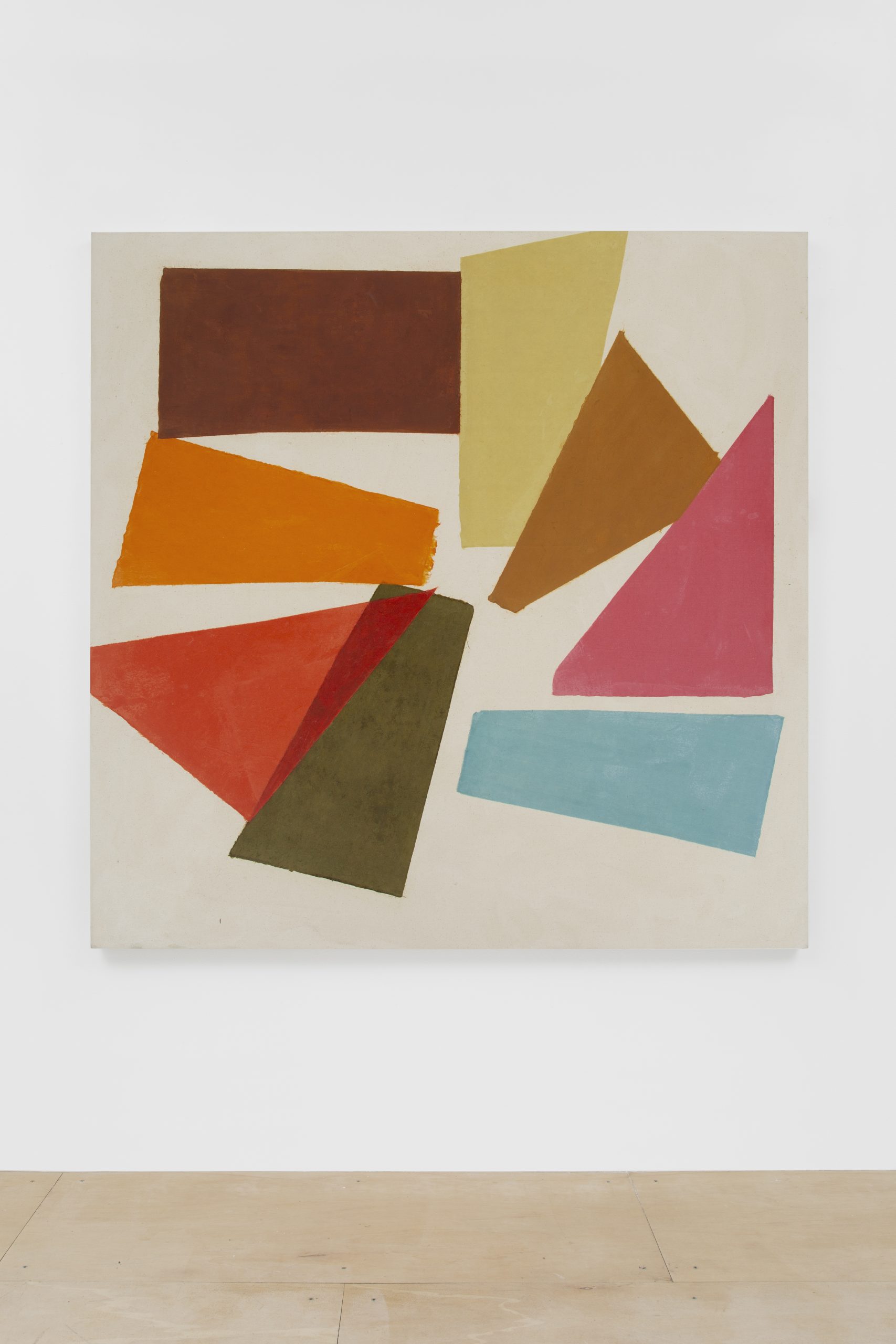
Rochelle Feinstein, Off Color, 2017, Color Kozo Moriki paper, acrylic on canvas, 60 x 60 in.
-
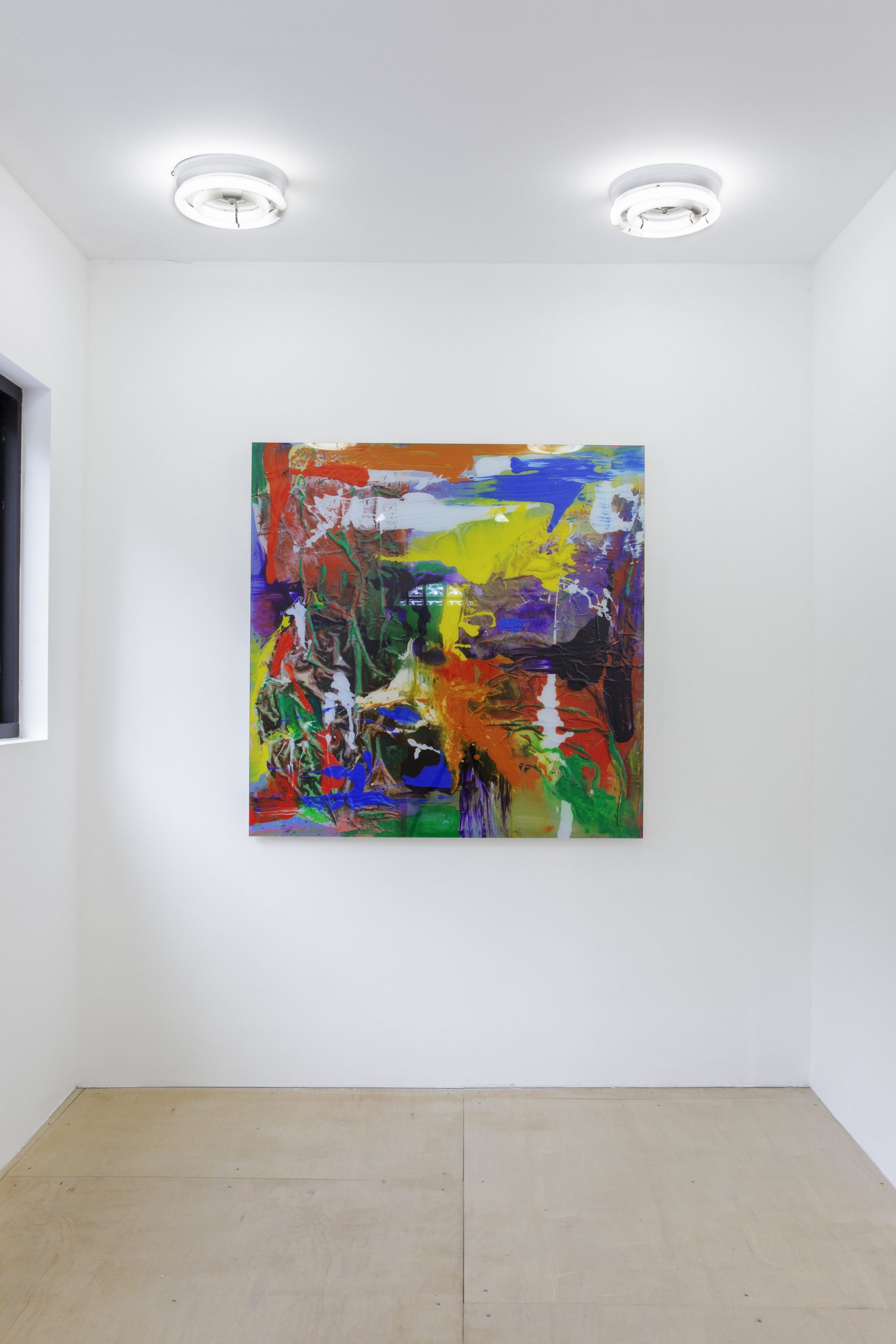
Rochelle Feinstein: You Again, Installation View. Photography by Greg Carideo
This understanding of the medium—hard won over the decades—has been in crisis in our moment of political and ecological breakdown. And sadly, there’s a thin line between negative capability and incapability. Created during a time when institutions like democracy and the rule of law were showing cracks, “Who Cares” (2017), a diptych that drains a painting twice-over—first by photographing it and presenting the image instead of the original work, and then by presenting it alongside a desaturated half-tone version of the same image. The effect is of diminishment, exhaustion, but also, a steely lack of preciousness, a clear-eyed attempt to get at the heart of things.
-
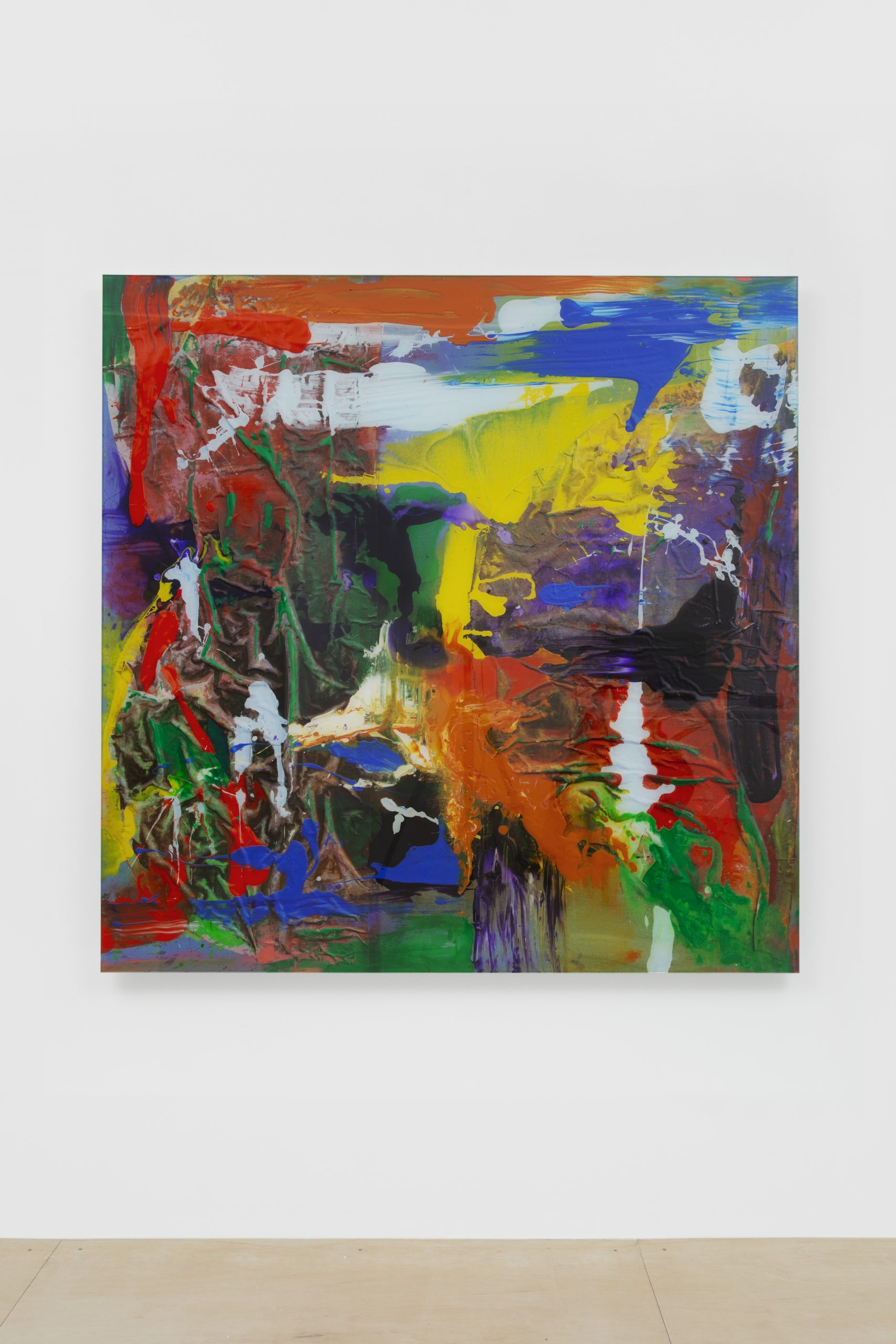
Rochelle Feinstein, Who Cares, 2017, Archival pigment print on face mounted on plexiglass, sintra backing, 50 x 50 in.
-
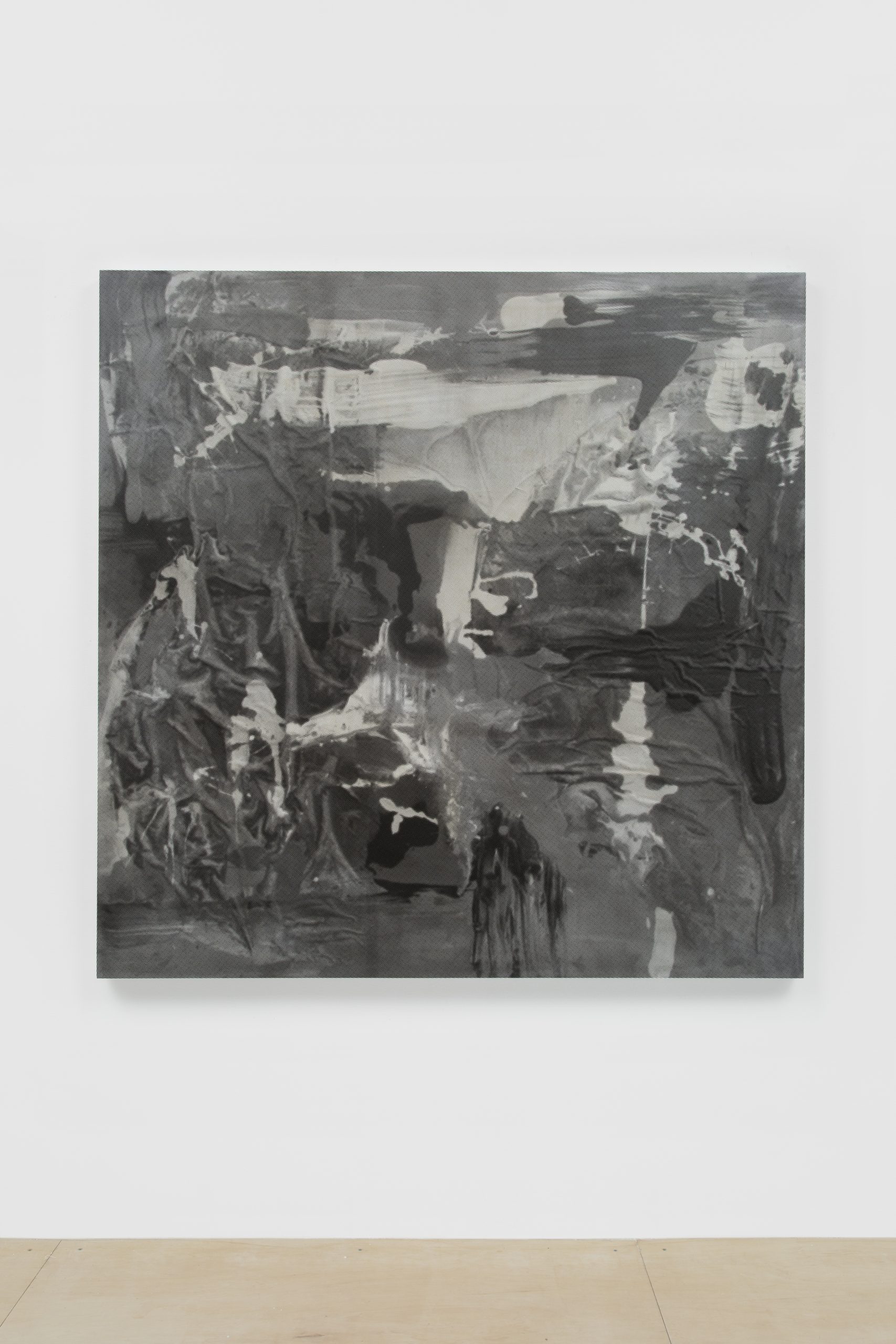
Rochelle Feinstein, Who Cares, 2017, UV print, acrylic on canvas, 50 x 50 in.
Feinstein deploys the same strategy of desaturation in “Endpapers I and II” (2021), the most recent works in the show. Beginning with a series of random watercolor brushmarks on notebook paper that were scanned, enlarged via Photoshop, UV-printed on linen, and then converted to black-and-white half-tone before being finally printed on aluminum. Like in “Who Cares,” color appears at first to be a casualty. However, its drastic reduction feels liberating, as if the paintings no longer depend upon the eyes of the viewer—as if, prepped for digital transfer, they travel faster than the speed of sight.
Their velocity depends upon Feinstein’s use of scanning and printing technologies unavailable in 1989, when she painted “Living Color.” However, these latest works have much in common with her earlier paintings; as the title implies, they bookend the show, combining in their composition preparatory marks and the technology of reproduction, giving us the multihued vibrance of a day’s work, followed the cool drain of a screen going dim. Like the rest of You Again, they’re about how the past and present rhyme, about the language of sight, and how painting—in Feinstein’s seemingly inexhaustible understanding of it—spans the distance between us and the world.”
Hunter Braithwaite
-
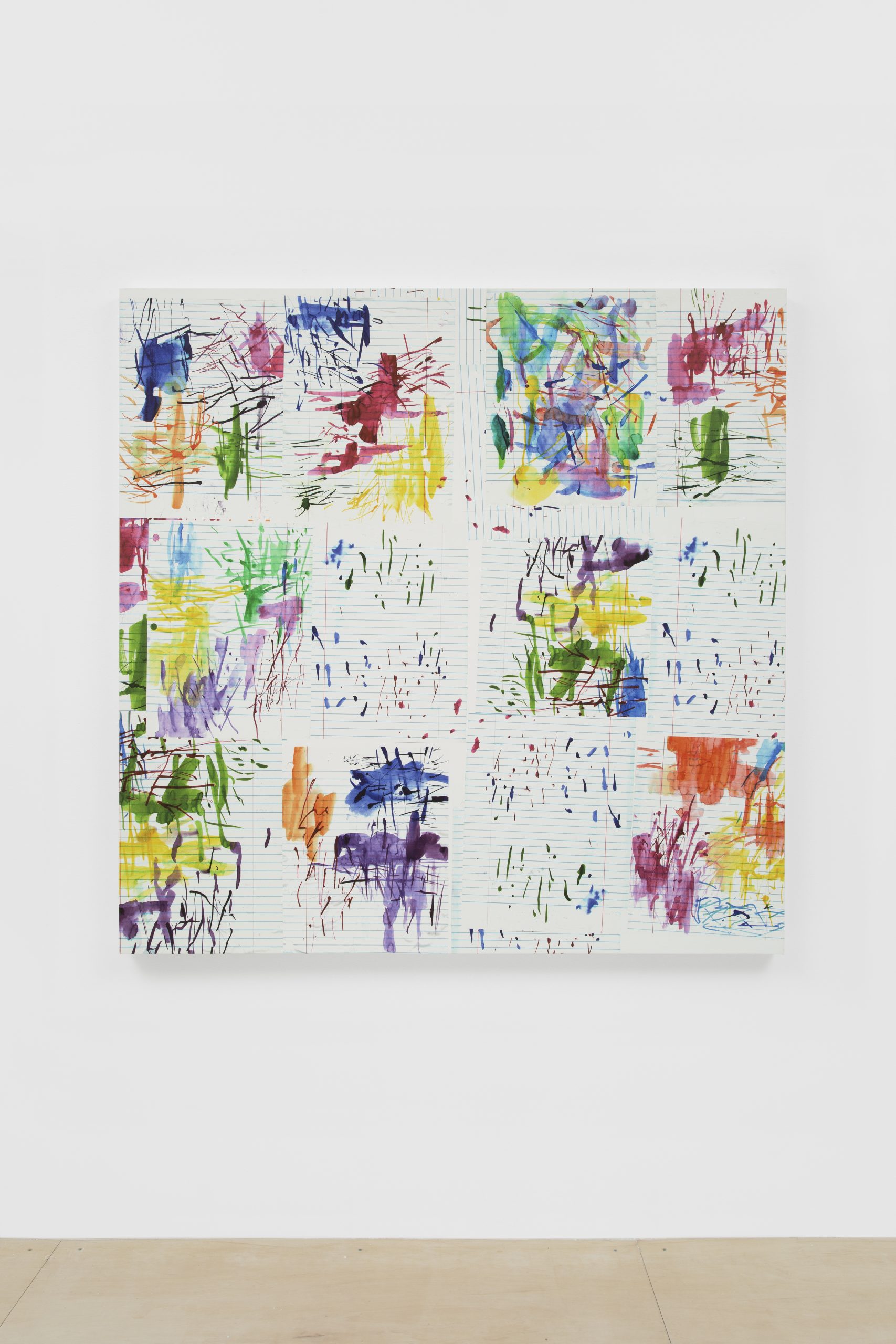
Rochelle Feinstein, Endpapers 1, 2021, UV print on linen, 42 x 42 in.
-
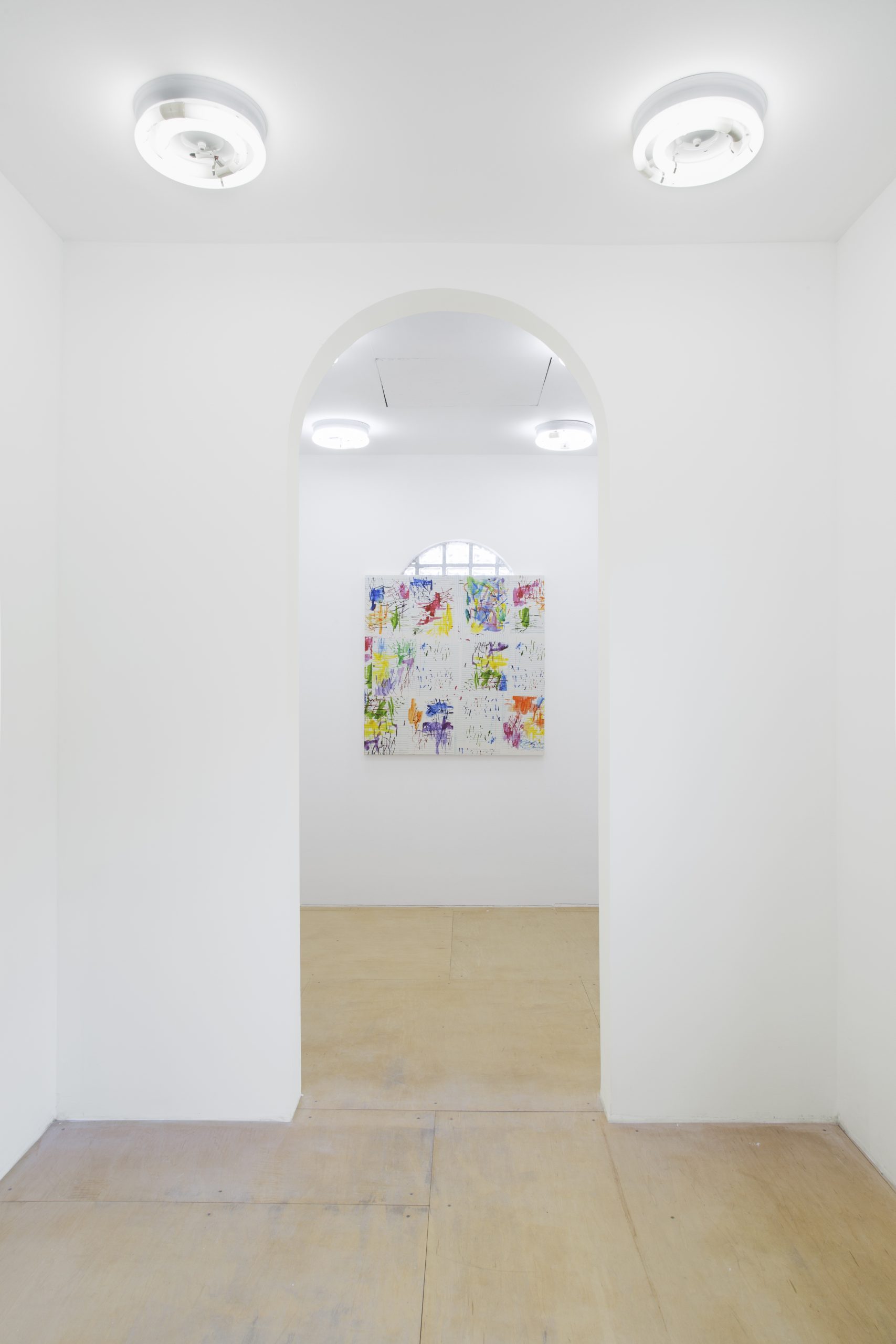
Rochelle Feinstein: You Again, Installation View. Photography by Greg Carideo
Rochelle Feinstein: You Again is a six-venue, international exhibition of new and historic work by Rochelle Feinstein, opening in January and February 2022 at Campoli Presti, Bridget Donahue, Hannah Hoffman, Nina Johnson, Candice Madey, and Galerie Francesca Pia.
Feinstein is a legendary painter whose work and ideas about abstraction have influenced generations of artists. Over the past four decades, she has deflated the dogmas of modernism with humor and verve, liberally borrowing from different schools of painting, as well as other mediums, including drawing, photography, printmaking, sculpture, video, and installation. Though it takes myriad forms, her singular project always centers painting within culture at large. She moves freely through the history of late 20th-century painting, rejoicing in materiality while poking holes in the notion of pure painting.
Titled You Again, the exhibition features several recent bodies of work, arranged thematically by venue, which reflect upon this time of turmoil and anxiety with mordant wit. Each venue presents historic work alongside newer work that responds to, teases, expands on, or complicates the themes of the earlier examples. The six-venue exhibition format functions as a spatial representation of Rochelle’s many-faceted practice, giving a birdseye view on decades of her work. You Again will be accompanied by a broadsheet publication that integrates text and images from all six exhibitions, available at each gallery.
Rochelle Feinstein: You Again
Bridget Donahue, New York: January 28 – March 12
Candice Madey, New York: January 28 – March 12
Nina Johnson, Miami: February 3 – April 2
Francesca Pia, Zurich: February 11 – March 26
Campoli Presti, Paris: February 12 – March 26
Hannah Hoffman, Los Angeles: February 12 – March 26
-
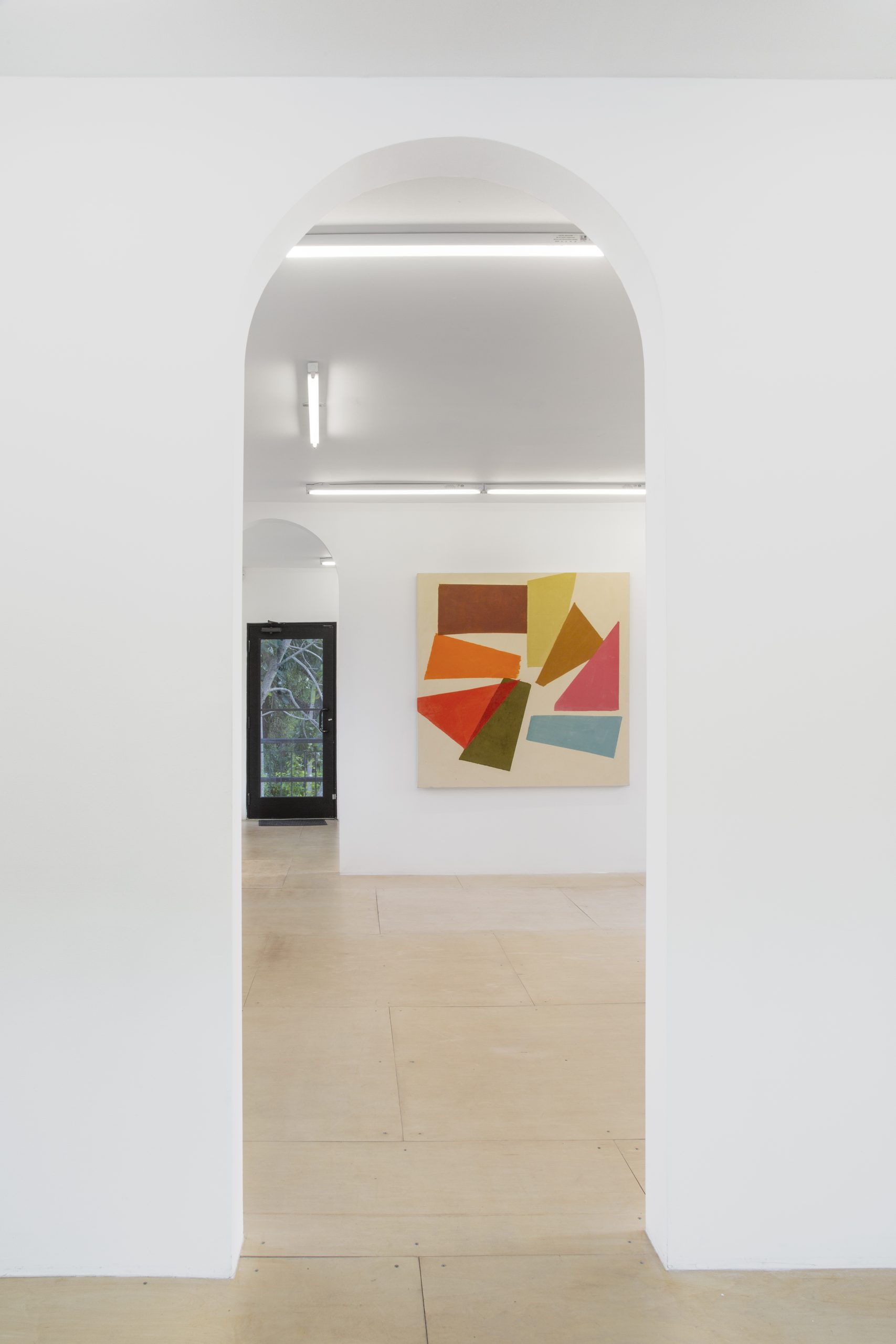
Rochelle Feinstein: You Again, Installation View. Photography by Greg Carideo
Born in 1947, Rochelle Feinstein is a longstanding and deeply respected member of the New York art community. A major survey exhibition of Feinstein’s work originated at the Centre d’Art Contemporain, Geneva (2016), and subsequently traveled to Städtische Galerie in Lenbachhaus, Munich (2016), Kestnergesellschaft, Hannover (2017), and the Bronx Museum of the Arts (2018-2019). Other solo exhibitions have taken place at Kunsthaus Baselland (2018) and the Radcliffe Institute for Advanced Study, Harvard University (2012). Feinstein is Professor Emerita of Painting and Printmaking at Yale University (2017). Among her numerous accolades, she is a recent recipient of the prestigious Rome Prize Jules Guerin Fellowship in Visual Arts, American Academy in Rome (2017-2018). Her work is in museum collections including the Museum of Modern Art, New York; Amorepacific Museum of Art, Seoul; Städtische Galerie im Lenbachhaus, Munich; the Pérez Art Museum, Miami; and the Mount Holyoke College Art Museum.